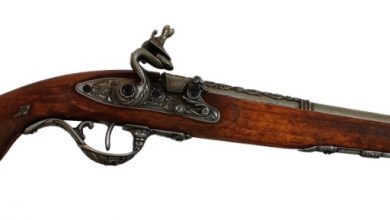Rebecca Harding Davis explores the theme of class conflict in American society through her short story “Life in the Iron Mills,” immersing readers in a vivid portrayal of the grim environment filled with fog, mud, and unpleasant odors. By choosing to publish the story anonymously, Davis gains the artistic freedom to depict the oppression endured by the lower class with powerful and evocative imagery. The intended audience of this story is the upper and middle classes, aiming to instigate a transformation within the hierarchical class system of America.
Life in the Iron Mills | Summary
The story begins with the description of a cloudy, polluted day in a town dominated by its ironworks. The sky is obscured by smoke from the chimneys of the iron foundries, and the air is thick and stifling. The author observes the grimy, miserable lives of the workers, their faces marked by pain, cunning, and the effects of their labor. The river, burdened by boats and coal barges, appears tired and weary, much like the workers themselves. The author reflects on the contrast between the polluted, stagnant environment and the possibility of a brighter future beyond.
The author mentions a story from the past, about a man named Hugh Wolfe, who worked as a furnace tender in one of the mills. The Wolfe family lived in a rented house along with other families. The description highlights the difficult and impoverished lives of the workers, marked by hard labor, filth, and occasional bouts of drunkenness. The author suggests that there is a profound question underlying the lives and deaths of these workers, a question that remains unanswered and drives them to madness. They hold onto a hope that this question holds within it a prophecy of a better future. We are faced with the question of whether there is more to these workers’ lives than meets the eye and whether there is potential for reform and improvement.
On a rainy night, a group of women, exhausted from working in a cotton mill, stop outside a cellar door. They invite Deborah Wolfe, one of the women, to a ball, but she declines. Deborah enters the cellar where she lives with her father, Old Wolfe. She prepares a meager meal for herself and her daughter, Janey, who emerges from a pile of rags. Janey reveals that Hugh, Deborah’s son, is still at work and will not return until morning. Worried about Hugh going hungry, Deborah quickly packs his supper and sets out in the rain to deliver it to him at the mill where he works.
As Deborah walks through the town, she passes closed houses and encounters other mill workers. The constant noise of the mills, even at night, surrounds her like distant thunder. The road to the mills is lined with rock on one side and the sluggish, black river on the other. Deborah finds the mills to be a nightmarish sight, filled with fires and men toiling in the red light. She finally locates Hugh, who is busy with his work and unable to eat. Deborah waits behind the furnace for him, enduring the cold rain and physical discomfort. One of the men working with Hugh invites Deborah to warm herself by the fire, but she remains standing, holding the pail of food. Eventually, Hugh finishes his work, and Deborah hands him supper before heading back into the rainy night.
Deborah watches as Hugh, her son, eats his supper, realizing that he is not hungry but eating to please her. She becomes aware of a strange light in her eyes and reflects on her own pale, watery appearance. Deborah has a deformed body and is tormented by her love for Hugh, her longing for his affection, and her jealousy of others, particularly a young Irish girl named Janey. She considers the pain and jealousy she feels, emphasizing that these emotions are just as real and savage in her world as they are in any other.
The passage then delves into the lives of the mill workers, portraying the dire circumstances in which they live. Deborah’s partner, Wolfe, is described as physically weak and sickly, known among the workers as “Molly Wolfe.” He is seen as different from his fellow laborers, possessing a sensitivity and a longing for beauty and purity that sets him apart. Wolfe also has a peculiar habit of creating figures out of korl, a porous material, during his off-hours at the mill.
The narrative highlights Wolfe’s yearning for something more in life, his feeling of being trapped in his lowly position, and his disillusionment with his own appearance and existence. He is intrigued when a group of visitors, including the mill overseer and a reporter, come to observe the works. Wolfe listens to their conversation and is acutely aware of the vast divide between their refined manner and his own filthy state. He realizes that he can never bridge that gap.
As the rain continues to fall and the visitors remain engrossed in conversation, Wolfe experiences a growing sense of hopelessness and despair. The tolling of the midnight bell marks the arrival of Sunday morning, carrying with it an unknown message that seems to hold the key to the world’s problems. The passage concludes by describing the workers covering the furnaces and the visitors preparing to leave, while Wolfe contemplates the stark contrast between their lives and his own.
A group of men, including Doctor May, Mitchell, and mill owner Kirby, encounter a white statue of a woman outside the mills. They discuss its artistic qualities and the emotions it evokes. Wolfe, a puddler, is accused of creating the statue and is questioned about its meaning. Wolfe mentions that the woman depicted in the statue is hungry, not for food, but for something to make her live, like whiskey. Mitchell, who understands the woman’s hunger, criticizes the others for their indifference and lack of responsibility. Kirby argues that he is not responsible for the well-being of his workers beyond paying them. The conversation turns philosophical, with Mitchell suggesting that true reform comes from the need of the people themselves, not from outside intervention. The men eventually leave, and Wolfe is left contemplating his own life and aspirations. He is filled with a sense of injustice and despair. He returns home to a miserable living situation, where his father is drinking while his sister Janey sleeps. Wolfe is overcome with a bitter realization that his dreams for a better future have died. Deborah enters the room and tries to comfort him.
Deborah, crying, tries to convince him that money can change their lives. Hugh pushes her away, tired of her insistence. They enter their shabby cellar, where Hugh’s father and Janey, his sister, are present. Hugh, feeling a sense of despair, gives up on a hopeful plan for the future that involved Janey. Deborah follows him into another room, where she tries once again to convince him of the importance of money. He rebuffs her and asks her to leave. The candlelight illuminates the scene, emphasizing the worn conditions of their surroundings. Deborah secretly gives him a small roll of money she took from someone. Hugh initially intends to give it back, but temptation overwhelms him as he contemplates the possibilities it holds. Sitting in an alley, he wrestles with the idea of theft and the desperate longing for a better life. He envisions himself transformed into a kind and successful person. The night passes, and he grapples with the moral dilemma. Ultimately, he sees the money as a gift from God, meant to improve his life. He questions the concept of theft, believing that God does not differentiate between the rich and the poor. Overwhelmed by the weight of his desires and the belief in a just life, he contemplates succumbing to the temptation to keep the money.
After succumbing to the temptation and keeping the stolen money, Hugh Wolfe wanders through the town, bidding farewell to familiar places. He briefly enters a church and is moved by the sermon of a Christian reformer, but the words resonate differently with his impoverished and desperate state. Feeling a sense of failure, he continues wandering aimlessly. The story suggests that his downfall and subsequent arrest for robbery are unremarkable tragedies that often occur in society. A month later, he is sentenced to nineteen years of hard labor in the penitentiary. The scene ends with Hugh sitting in his prison cell, his ankles ironed after two failed escape attempts.
Haley, the jailer, sympathizes with Hugh’s situation. During Hugh’s arrest and trial, he exhibits only despair and indifference. Despite attempts to prove him crazy, Hugh was sentenced to nineteen years in prison for stealing money. Haley recounts Hugh’s desperate actions in his cell, including self-harm and escape attempts. Deborah, locked in the adjacent cell, expresses her guilt and love for Hugh, but he remains detached. Market day brings a moment of awakening for Hugh as he observes the bustling crowd below, realizing he will never be a part of the world again. Thoughts of the future, degradation, and the absence of right or wrong torment him. Deborah bids him farewell, but he remains resolute. She leaves, visibly affected. In her cell, Deborah peeks through a crack, listening to Hugh scraping the bars with a tin. She shivers at the sound, realizing the futility of his actions. Hugh gazes out the window and sees a mulatto girl, momentarily captivated by her appearance. Trembling, he covers his face, and when he looks up again, darkness has fallen.
As the evening progresses, Hugh longs for human interaction and watches the fading street activity. Disappointed by the lack of acknowledgment, he plays with a sharpened piece of tin and reflects on his veins. Deborah, fearful, listens in her cell. Hugh lies down, observing the calming moonlight illuminating his feet, and reminisces about his harsh life and unfulfilled dreams. Faces from his past appear and fade away, leaving only the serene moonlight.
The next day, authorities and onlookers arrive, and Deborah guards Hugh’s body while a Quaker woman watches closely. After everyone leaves, the woman tends to the body, places a vase of leaves and berries nearby, and opens the window for fresh air. Deborah is amazed by the woman’s intuitive gestures and pleads for Hugh not to be buried in the town cemetery. Understanding her concerns, the Quaker promises to bury Hugh in a place with fresh and strong air—the hills across the river.
Deborah finds solace in the Quaker’s promise to bury Hugh on the hills. Years later, Deborah starts anew on the hills, surrounded by a community of loving and silent Quakers. She waits with hope and devotion, longing for a reunion in a purer and higher place.
The story concludes with a reference to a figure of the mill woman carved in coal, a rough and ungainly representation. It serves as a reminder of Hugh’s thwarted life and unfinished work. The author reflects on the eternal questions of existence and the fleeting nature of life, finding solace in the promise of a new day and the beauty of truth.


